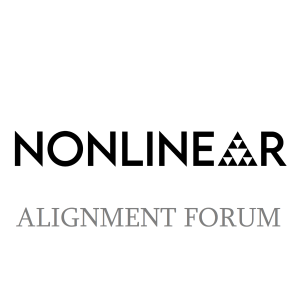

The Nonlinear Library: Alignment Forum
AF - Koan: divining alien datastructures from RAM activations by Tsvi Benson-Tilsen
2024-04-05
Link to original articleWelcome to The Nonlinear Library, where we use Text-to-Speech software to convert the best writing from the Rationalist and EA communities into audio. This is: Koan: divining alien datastructures from RAM activations, published by Tsvi Benson-Tilsen on April 5, 2024 on The AI Alignment Forum.
[Metadata: crossposted from https://tsvibt.blogspot.com/2024/04/koan-divining-alien-datastructures-from.html.]
Exploring the ruins of an alien civilization, you find what...
Link to original article
Welcome to The Nonlinear Library, where we use Text-to-Speech software to convert the best writing from the Rationalist and EA communities into audio. This is: Koan: divining alien datastructures from RAM activations, published by Tsvi Benson-Tilsen on April 5, 2024 on The AI Alignment Forum.
[Metadata: crossposted from https://tsvibt.blogspot.com/2024/04/koan-divining-alien-datastructures-from.html.]
Exploring the ruins of an alien civilization, you find what appears to be a working computer - - it's made of plastic and metal, wires connect it to various devices, and you see arrays of capacitors that maintain charged or uncharged states and that sometimes rapidly toggle in response to voltages from connected wires. You can tell that the presumptive RAM is activating in complex but structured patterns, but you don't know their meanings.
What strategies can you use to come to understand what the underlying order is, what algorithm the computer is running, that explains the pattern of RAM activations?
Thanks to Joss Oliver (SPAR) for entertaining a version of this koan. Many of B's ideas come from Joss.
Real data about minds
Red: If we want to understand how minds work, the only source of real data is our own thinking, starting from the language in which we think.
Blue: That doesn't seem right. A big alternative source of data is neuroscience. We can directly observe the brain - - electrical activations of neurons, the flow of blood, the anatomical structure, the distribution of chemicals - - and we can correlate that with behavior. Surely that also tells us about how minds work?
Red: I mostly deny this. To clarify: I deny that neuroscience is a good way to gain a deep understanding of the core structure of mind and thought. It's not a good way to gain the concepts that we lack.
Blue: Why do you think this? It seems straightforward to expect that science should work on brains, just like it works on anything else. If we study the visible effects of the phenomenon, think of hypotheses to explain those visible effects, and test those hypotheses to find the ones that are true, then we'll find our way towards more and more predictive hypotheses.
R: That process of investigation would of course work in the very long run. My claim is: that process of investigation is basically trying to solve a problem that's different from the problem of understanding the core structure of mind. That investigation would eventually work anyway, but mostly as a side-effect.
As a rough analogy: if you study soccer in great detail, with a very high standard for predictive accuracy, you'll eventually be forced to understand quantum mechanics; but that's really a side-effect, and it doesn't mean quantum mechanics is very related to soccer or vice versa, and there's much faster ways of investigating quantum mechanics.
As another, closer analogy: if you study a calculator in great detail, and you ask the right sort of questions, then you'll eventually be led to understand addition, because addition is in some sense a good explanation for why the calculator is the way that it is; but you really have to be asking the right questions, and you could build a highly detailed physics simulation that accurately predicts the intervention-observation behavior of the calculator as a physical object without understanding
addition conceptually (well, aside from needing to understand addition for purposes of coding a simulator).
B: What I'm hearing is: There are different domains, like QM and soccer, or electrons in wires vs. the concepts of addition. And if you want to understand one domain, you should try to study it directly. Is that about right?
R: Yeah, that's an ok summary.
B: Just ok?
R: Your summary talks about where we start our investigation. I'd also want to emphasize the directional pull on our investigation that comes from the questions we're asking.
B: I see. I don't think this really applies to neuroscience and minds, though. Like, ok, what we really wa...
View more
Welcome to The Nonlinear Library, where we use Text-to-Speech software to convert the best writing from the Rationalist and EA communities into audio. This is: Koan: divining alien datastructures from RAM activations, published by Tsvi Benson-Tilsen on April 5, 2024 on The AI Alignment Forum.
[Metadata: crossposted from https://tsvibt.blogspot.com/2024/04/koan-divining-alien-datastructures-from.html.]
Exploring the ruins of an alien civilization, you find what appears to be a working computer - - it's made of plastic and metal, wires connect it to various devices, and you see arrays of capacitors that maintain charged or uncharged states and that sometimes rapidly toggle in response to voltages from connected wires. You can tell that the presumptive RAM is activating in complex but structured patterns, but you don't know their meanings.
What strategies can you use to come to understand what the underlying order is, what algorithm the computer is running, that explains the pattern of RAM activations?
Thanks to Joss Oliver (SPAR) for entertaining a version of this koan. Many of B's ideas come from Joss.
Real data about minds
Red: If we want to understand how minds work, the only source of real data is our own thinking, starting from the language in which we think.
Blue: That doesn't seem right. A big alternative source of data is neuroscience. We can directly observe the brain - - electrical activations of neurons, the flow of blood, the anatomical structure, the distribution of chemicals - - and we can correlate that with behavior. Surely that also tells us about how minds work?
Red: I mostly deny this. To clarify: I deny that neuroscience is a good way to gain a deep understanding of the core structure of mind and thought. It's not a good way to gain the concepts that we lack.
Blue: Why do you think this? It seems straightforward to expect that science should work on brains, just like it works on anything else. If we study the visible effects of the phenomenon, think of hypotheses to explain those visible effects, and test those hypotheses to find the ones that are true, then we'll find our way towards more and more predictive hypotheses.
R: That process of investigation would of course work in the very long run. My claim is: that process of investigation is basically trying to solve a problem that's different from the problem of understanding the core structure of mind. That investigation would eventually work anyway, but mostly as a side-effect.
As a rough analogy: if you study soccer in great detail, with a very high standard for predictive accuracy, you'll eventually be forced to understand quantum mechanics; but that's really a side-effect, and it doesn't mean quantum mechanics is very related to soccer or vice versa, and there's much faster ways of investigating quantum mechanics.
As another, closer analogy: if you study a calculator in great detail, and you ask the right sort of questions, then you'll eventually be led to understand addition, because addition is in some sense a good explanation for why the calculator is the way that it is; but you really have to be asking the right questions, and you could build a highly detailed physics simulation that accurately predicts the intervention-observation behavior of the calculator as a physical object without understanding
addition conceptually (well, aside from needing to understand addition for purposes of coding a simulator).
B: What I'm hearing is: There are different domains, like QM and soccer, or electrons in wires vs. the concepts of addition. And if you want to understand one domain, you should try to study it directly. Is that about right?
R: Yeah, that's an ok summary.
B: Just ok?
R: Your summary talks about where we start our investigation. I'd also want to emphasize the directional pull on our investigation that comes from the questions we're asking.
B: I see. I don't think this really applies to neuroscience and minds, though. Like, ok, what we really wa...
Comments (3)
More Episodes
All Episodes>>Create Your Podcast In Minutes
- Full-featured podcast site
- Unlimited storage and bandwidth
- Comprehensive podcast stats
- Distribute to Apple Podcasts, Spotify, and more
- Make money with your podcast
It is Free












